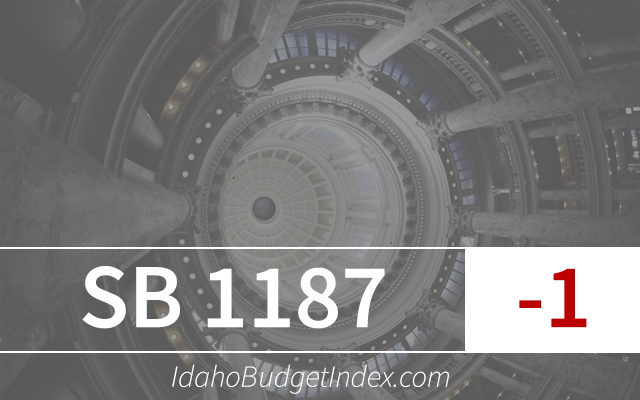


The Idaho Budget Index examines appropriation bills on several fronts to add important context to lawmakers’ discussions as they are considered on the floor of the House and Senate. Among the issues we look at in drawing a conclusion about a budget:
Does the agency requesting these funds serve a proper role of government? Has wasteful or duplicative spending been identified within the agency, and if so, has that spending been eliminated or corrected? Does the budget examine existing spending to look for opportunities to contain spending, e.g., through a base reduction? If there is a maintenance budget, is that maintenance budget appropriate? Are the line items appropriate in type and size, and are they absolutely necessary for serving the public? Does the budget contemplate the addition of new employees or programs? Does the appropriation increase dependency on the federal government?
Our analysis is intended to provide lawmakers and their constituents with a frame of reference for conservative budgeting, by summarizing whether appropriation measures contain items that are sincerely objectionable or sincerely supportable.
Analysis:
The following background on the Millenium Fund comes from the Legislative Budget Book Fiscal Year 2020, page 6-179:
“MILLENNIUM INCOME FUND GRANTS H486 of 2002 created the Joint Millennium Fund Committee, made up of five members of the Senate and five members of the House of Representatives and charged it with reviewing grant applications and providing a funding recommendation to the Legislature, through the Joint Finance-Appropriations Committee (JFAC). There is no specification in law with regard to how the moneys in the Millennium Income Fund shall be used, but the Joint Legislative Millennium Fund Committee has chosen to only consider applications for programs and projects directly related to one or more of the following: (1) tobacco cessation or prevention; (2) substance abuse cessation or prevention; or (3) tobacco or substance abuse related disease treatment. In addition, the committee has determined that funds may not be used for permanent capital improvements or organizational start-up costs. For FY 2019, the committee voted to not solicit or accept grant applications. Decisions related to the Millennium Income Fund will be made by JFAC.”
Given that the intention of the Millenium Fund was to be tied to tobacco and substance abuse, two major policy departures are concerning about this appropriation.
Rating: -1


